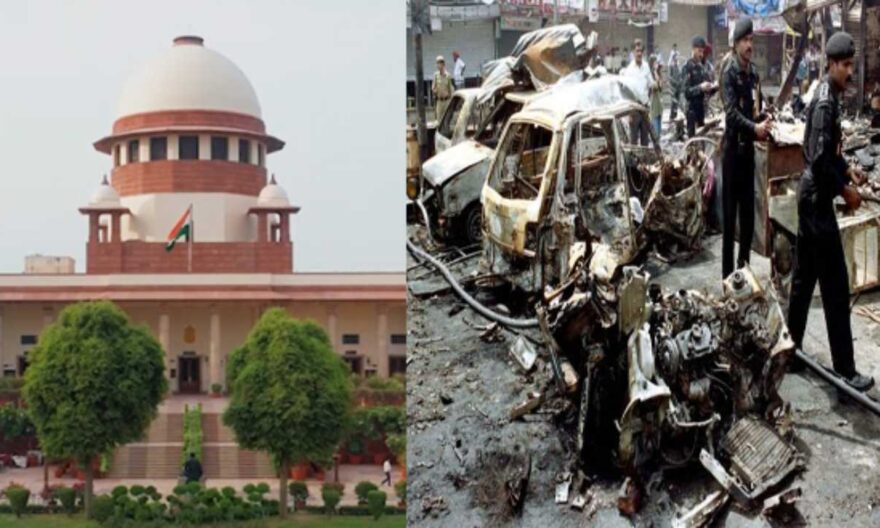
The Supreme Court of India, while pronouncing the sentence for four Jammu and Kashmir Islamic Front (JKIF) militants convicted in the 1996 Lajpat Nagar bomb blast, emphasized the importance of speedy trials.
The court also considered the elapsed time since the terror attack and the date of conviction as mitigating circumstances in not awarding the death penalty.
The bench, comprising Justices BR Gavai, Vikram Nath, and Sanjay Karol, upheld the conviction of two accused and set aside the ruling of the Delhi High Court, which discharged the other two for lack of evidence. The division bench sentenced all four militants to life imprisonment, extending until the end of their natural lives, 27 years after the bombing.
While delivering the verdict, the apex court expressed disapproval of the more than decade-long delay in completing the trial. Justice Karol, who authored the judgment, wrote that the delay, regardless of its cause, compromised national interest. He emphasized the need for expeditious trial in cases involving national security and public welfare, stressing that such cases should be handled with urgency and sensitivity at all levels.
The Supreme Court, while allowing the appeals filed by the government, refused to reinstate the death sentences imposed by the trial court. Instead, the bench substituted the capital punishment with whole-life sentences, considering mitigating circumstances. The court highlighted that the severity of the offense resulted in the deaths of innocent individuals and caused significant damage. The bench directed the accused, if on bail, to surrender immediately.
The case
In 1996, a bomb blast occurred at Delhi’s Lajpat Nagar Central Market, resulting in the loss of 13 lives, injuries to 38 individuals, and extensive property damage. The Jammu and Kashmir Islamic Front (JKIF), designated as a terrorist organization under the Unlawful Activities (Prevention) Act, claimed responsibility for the attack. The police booked six suspected Kashmiri militants and two others, including a woman, in connection with the blast. Mafia dons Dawood Ibrahim and Tiger Menon were also named as accused in the case.
In April 2010, a local court in Delhi sentenced three convicted members to death, while another was sentenced to life imprisonment. Two individuals charged with lesser offenses were released. However, 16 years later, in November 2012, the Delhi High Court acquitted some of the convicts and commuted the death sentence of one convict to life imprisonment, citing serious prosecution lapses. The Supreme Court recently upheld the convictions of two individuals, sentencing them to life imprisonment without remission, and restored the life sentences of the other former death row convicts.




